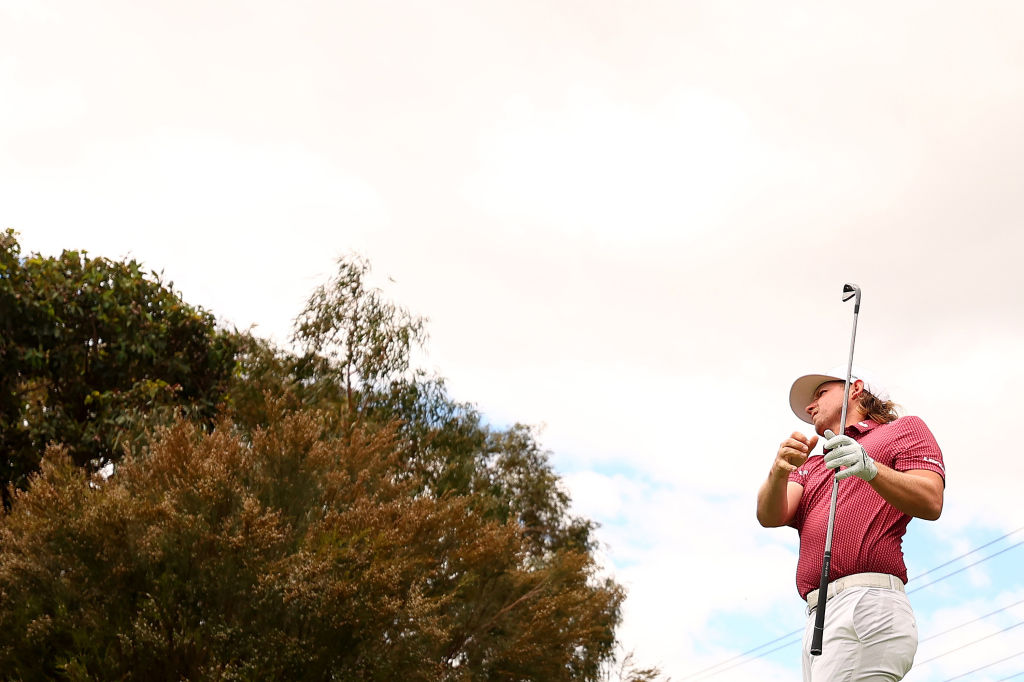Tournaments: Golden Glow – Australian Golf Digest

- by Admin
- August 28, 2024

Four parting thoughts from 13 days watching golf finally find a home in the Olympics
In so many French films, the movie ends slowly, a long, aching, uncertain yet hopeful panorama with a single actor running or moving both away from something horrible, tragic or empty and towards something new but not yet defined. The audience is filled with a mix of resignation and wonder, and almost always in these moments the scene ends with the camera at one with the actor’s eyes. He (or she) is at once lost and found, transformed yet still not fully reborn. Because the French, in my magnificently uninformed assumption, so passionately celebrate the journey and not some particular destination, these films do not so much end as dissolve, melt away so that the memory of the final moments linger like a long conversation into the night held in two languages simultaneously. At that very instant, when you stand poised for some contrived resolution, the screen freezes like life itself is stopping, and all you can see is the simple word, Fin.
In the simplest terms, Fin just means “The End” or “Finish”. But looked at another way, the word’s usually abrupt appearance seems more than a closing of the book. Rather, it is as much a question to the audience. It is as if the director, the actors and the film itself have said, “I have done my work. I have told the story. Now, it is your turn. Go and make of it what you will.”
This is how I felt leaving Le Golf National for the last time, having witnessed what by any measure was the best, most entertaining and electrifying Olympic golf experience ever. (OK, there only have been three, but this was golf’s biggest moment, and it easily could have been so much less than the triumph it clearly was.)
After what the Olympics showed us in two weeks is a lot like what we see at the end of “The 400 Blows” or “Cleo from 5 to 7” or “Breathless”. The word Fin has now appeared over this Olympics golf competition. Here is what I make of it:
Great champions and champions who are great
You can have your Olympic moments with underdog stories, but what makes Olympic moments resonate beyond the event is when the greatest athletes elevate at the greatest opportunity. This is what we saw with both the men’s and women’s competitions, and it was crucial to sustaining interest that this golf competition not leave us with some kind of Fortinet Classic leaderboard. Scottie Scheffler’s heroic charge was exactly what we expect of the great Olympians like Michael Phelps or Simone Biles or, frankly, Team USA in men’s basketball. No less a moment was the crowning of a Hall of Fame career with Lydia Ko’s gracefully savvy victory in the women’s competition.
But aside from getting the right champions or the right “winners”, in both cases, we got the people Olympic golf needed. Champions who get that the event is that meaningful because it is fundamentally different from any other week or any other year. Their wins brought tears, and you can say they cry at other titles and they very well might, but these tears all seemed to recognise that the Olympics aren’t just great for them, they’re great for golf.
As Scheffler said, “I think any time you can be part of the Olympics is really special and for golf to be on the Olympic stage is a tremendous amount of fun for us. It’s truly special to be part of the Olympic Games and be here with some of the best athletes in the world and to represent our country is extremely special. I’m definitely proud to be a part of it.”
Contrast that with sentiments that had many of the top men’s players skipping either or both of the first two Olympics merely confirms that the Games have arrived. And when Ko herself rightly acknowledged that what she had accomplished was a kind of fairytale ending, the fairytale was as much hers as it was all of golf’s: “We had some of the biggest crowds that I personally have played in front of, and it’s been such a cool feeling seeing all those people waiting and excited to see us and just hear the celebration of sport and the celebration of women’s golf as well.”

Let’s put to rest the discussion of format
From the very beginning, big-G Golf has had this confusing perspective on what golf’s purpose was in the Olympics, that there was some “grow-the-game” initiative mixed with a large-scale, major-like competitive event. I don’t cover other sports, but I don’t think they talk like this in the sailing community or the team handball federation or the equestrian association. Do they honestly think about developing more junior dressage leagues? And if they do, just like golf, they should just shut up.
Play the game the way it is meant to be played at the highest level. Ariarne Titmus isn’t asked to combine synchronised swimming back tucks during her 800-metre freestyle just to make her races more entertaining to non-swimming fans. Nor does her race end in the middle of lap 15 at 750 metres to shake things up a bit. You win the gold medal in your discipline by performing explicitly in that discipline.
Golf’s medal winners were the ones who survived golf’s traditional test the best. The ones who didn’t win crumbled in their fourth rounds (Jon Rahm and Nelly Korda come to mind). Does golf need an extra event, a mixed-team contest that might inject a bit more fun into the sport’s overall presence in the Olympics? Maybe. But there are not insignificant challenges with the schedules. Players, and not just the top ones but players with lower rankings and from smaller countries who find themselves trying to decide between missing regular tournaments and putting in jeopardy keeping or earning their cards, would have to be assured that the Olympics isn’t going to cost them their careers. If that could be done, and if a fairly tight schedule could be accommodated, by all means add a third golf event to the mix. If equestrian can hand out 18 medals and shooting can award 45, maybe golf with nine wouldn’t be out of line.
Vive Le Golf National and France
If you want to understand the most successful aspect of these games, you had to be there for the spontaneous singing of the French national anthem dozens of times as the home players made their way around Le Golf National’s stadium mounds. One player made a comment that the French were experiencing the Tiger effect, but I don’t think golf’s greatest ever player was serenaded like this. These fans, larger than nearly any player in the field had ever seen and chock-a-block with people just as likely to be wearing a hurling jersey as the Team Ireland golf kit, were the clearest example yet that golf attracts a broad audience just by being itself. Only soccer and athletics were drawing bigger daily crowds at these Olympics, and these were crowds that got there by 9am and stayed for eight hours. Even Parisian patisseries don’t open that early or stay open that late.
The larger message is that the games when they come to notoriously laconic Los Angeles face a tall order to fill. Riviera Country Club may be a memorably meaningful venue. Whether it engenders the same rabid enthusiasm and, quite honestly, the fireworks Paris’ stadium-golf design brought us this time, seems unlikely at best. The good thing may be that after what transpired at Le Golf National, golf will be must-see TV even if it were played at Rancho Park. Now, there’s an idea…
Golfers now think of themselves as Olympians
It is no great revelation that professional golfers live in a bubble, that their games thrive on routine, both inside and outside the ropes, that success largely is about making sure Memphis feels no different than Detroit, that Portland is just another version of Phoenix.
Indeed, and to its credit, the golf competition in the Olympics tried to be as similar inside the ropes to the biggest golf events. It may not ever be a “major”, but it’s becoming clear that it stands in a special category apart from any other event. We even applaud how a player’s “team” often endeavoured to inject normalcy into the tournament week, with Danish captain Thomas Bjorn earning the highest marks for bringing Nicolai Hojgaard and Thorbjorn Olesen to one of his favourite French restaurants prior to their third rounds. (It led to both shooting their best rounds of the week, including Hojgaard’s record-tying 62.)
But with all of that said, the biggest difference between these Olympics for the golfers was they truly embraced (and were embraced by) the Olympic experience. The chance to revel in the successes of other sports athletes, to see the French crowds explode over a new table-tennis hero, to be overwhelmed by the enormity of other athletes’ commitment and the pain of an Olympic dream dying, this is new territory for the self-contained world of an elite professional golfer. The education and passion it bred became infectious, whether it was in attending events or having another sport’s superstar pay a visit to the course, like Katie Ledecky did at the women’s golf. But to see Rose Zhang and Morgane Metraux, two players walking off their final holes with the disappointment of a medal lost seemingly front and centre in their minds, almost immediately transition to their enthusiasm for attending the Olympics closing ceremony, well, that reflects a sea change in where golf finds itself for these two weeks every four years.
Golf is part of the Olympic program now, according to the Olympic charter, essentially on equal footing with athletics and gymnastics and swimming. That’s written on a piece of paper. But to really know that’s true is to hear golfers genuinely beam about simply being here, to see Wyndham Clark laugh about how many other sports athletes were asking for swing tips during the opening ceremony, to hear Ledecky talk about her plans to take up golf, to listen as Zhang talked about how she can’t wait to meet American hurdler Sydney McLaughlin-Levrone at the closing ceremony.
Golf and golfers may have grudgingly found themselves in the Games eight years ago. Here in Paris, golf seemed to find itself an Olympic home. The echoes of the cheers, the colours of the flags, the leaderboards all linger, the game’s own kind of Fin. What it does with that energy is the ultimate golden opportunity.
The Latest News
-
January 9, 2025Australian Open 2025: Hady Habib becomes first Lebanese to make Grand Slam main draw in Open Era | Tennis News – Times of India
-
January 9, 2025Birrell survives marathon to book Australian Open start
-
January 9, 2025‘I’m ready’: Young star sends message to Aussie selectors
-
January 9, 2025Teenage Aussies face challenging Australian Open debuts
-
January 9, 2025Australian captain Pat Cummins in doubt for Champions Trophy as ankle injury revealed





